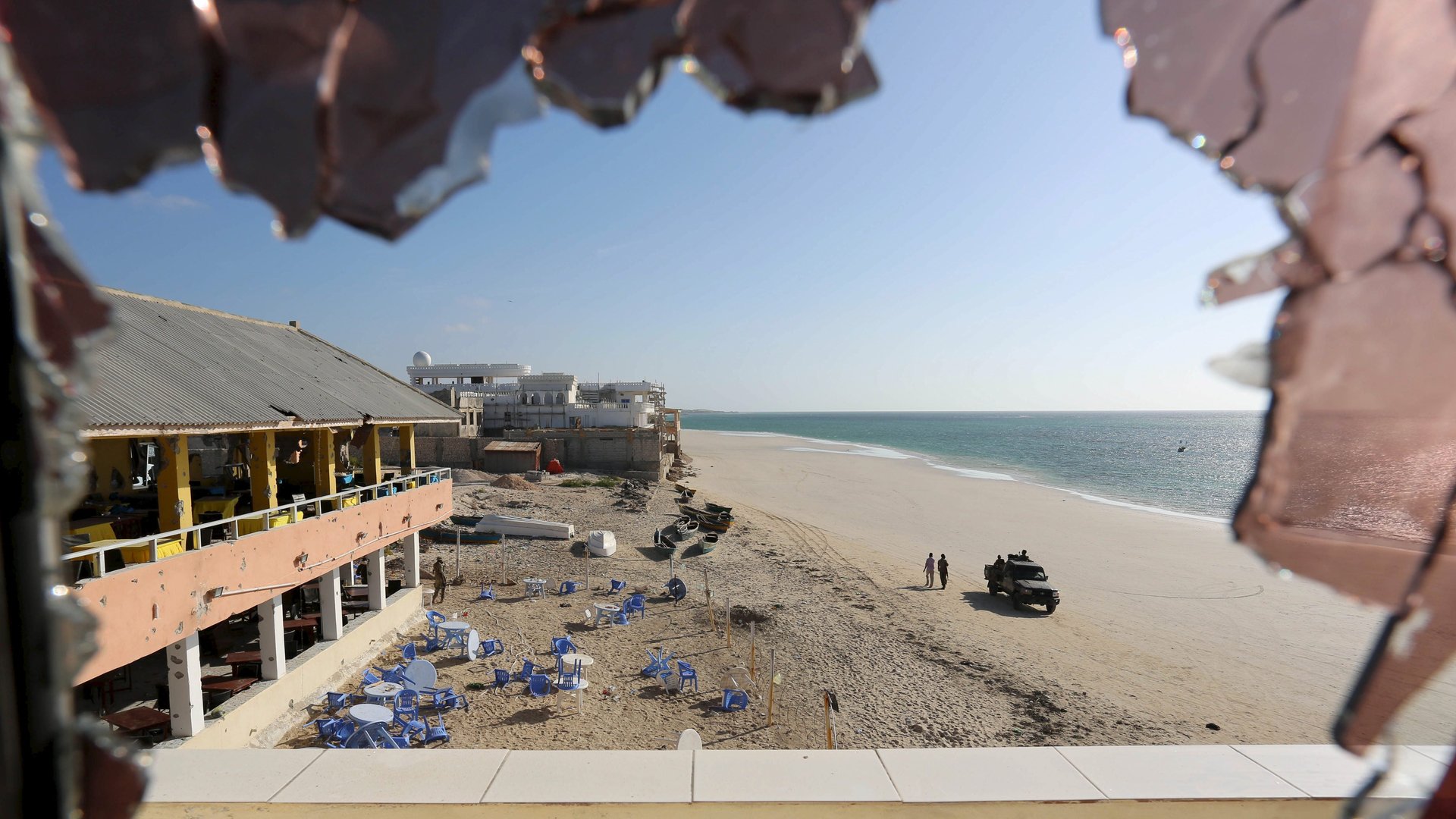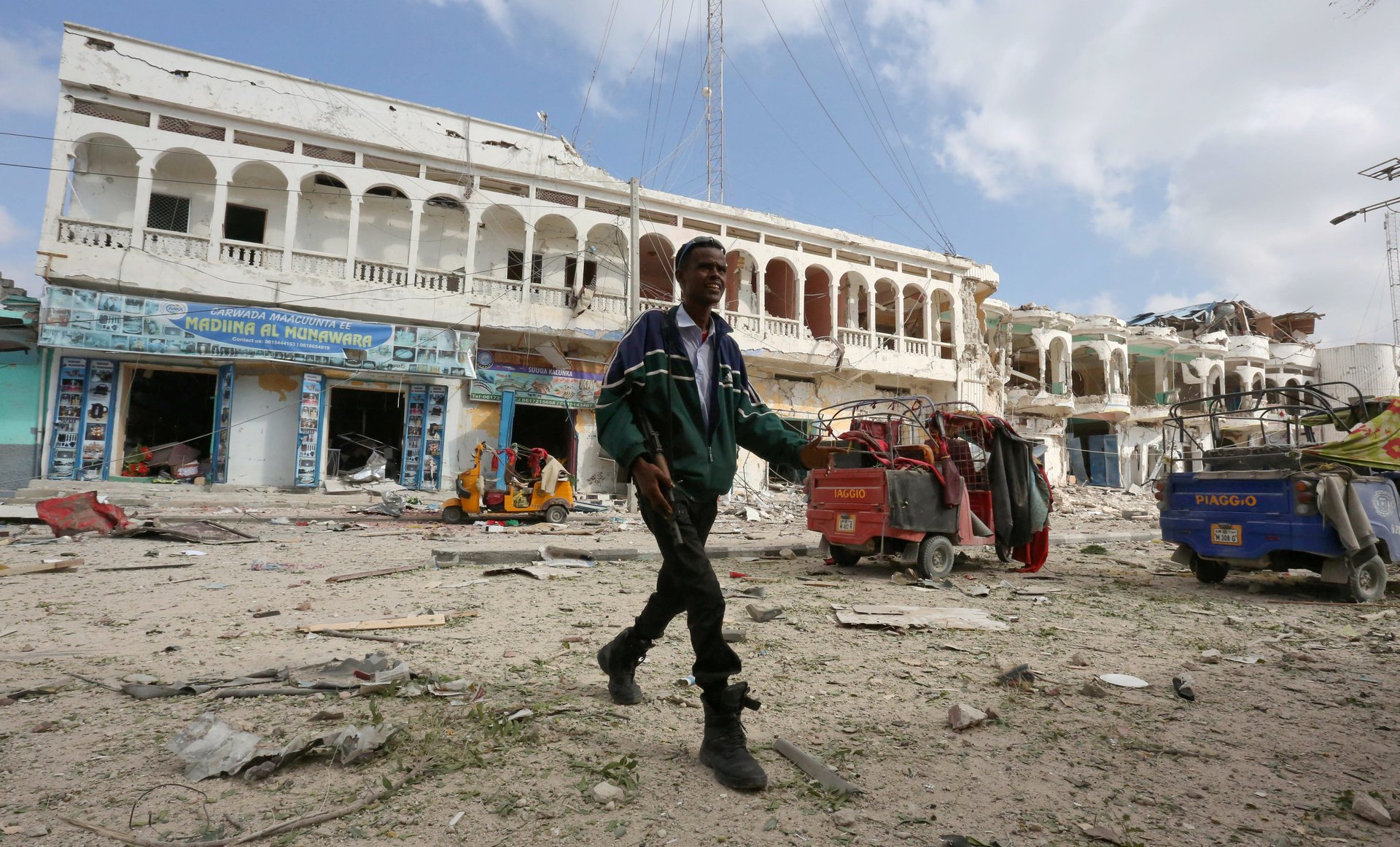Deadly attacks on hotels and restaurants in Somalia are robbing the country of its last safe spaces
On Wednesday (Jan. 26) morning, twin explosions rocked the Somali capital Mogadishu, reportedly killing at least 28 people and injuring 51 others. The gun-and-bomb attack hit Dayah Hotel, an establishment popular with politicians and located near the Somali parliament in central Mogadishu.


On Wednesday (Jan. 26) morning, twin explosions rocked the Somali capital Mogadishu, reportedly killing at least 28 people and injuring 51 others. The gun-and-bomb attack hit Dayah Hotel, an establishment popular with politicians and located near the Somali parliament in central Mogadishu.
The attack wasn’t one of the deadliest in the city or the country’s history. But with hotel guests and workers dead, journalists and bystanders injured, it revealed something about the grievous reality in Mogadishu. The attack was a testament to the continued erosion of safe spaces from the bloody and targeted violence that has taken hold of Somalia in the last few years.
Since 2011, when the terrorist group al-Shabaab fled the capital, a modicum of peace enveloped Mogadishu and its environs. New banks were established, apartment complexes were built, hospitals were renovated and roads paved. Regional conferences took place in Mogadishu, and the city even hosted its first ever TEDx Talk event and Social Good Summit. The International Monetary Fund welcomed Somalia back into its fold, and the World Bank offered to fund projects for the first time since 1991. A fragile democracy took hold in the country, a process which has seen the election of lawmakers and senators.

But in a city reeling from the effects of over two decades of war, it was the hotels, the seaside restaurants, the pizzerias and the newly-refurbished parks that gave Somalis and visitors hope for the future. The new establishments, with their tiled floors and vibrant colors, showed newcomers a welcoming new face of the war-torn city. Here, amidst friends and family, you could share a meal, a drink, and a laugh—and entertain for a moment the idea that life was good in Mogadishu.
That began to change in February of 2015, when at least 25 people, including the deputy mayor of Mogadishu, were killed in an attack on Central Hotel. In March 2015, Somalia’s permanent representative to the United Nations in Geneva was killed along with 20 others in an attack on Makka Al Mukarama Hotel. In July 2015, the luxury Jazeera Palace Hotel, which also housed diplomatic missions, including China’s, was attacked. In November 2015, at least 14 people were killed in Sahafi Hotel, which was popular with reporters covering the civil war in the 1990s. In February of 2016, an explosion targeted Mogadishu’s popular park, Peace Garden. In June 2016, 15 other people were killed and 34 others injured in Nasa Hablood Hotel.
Nasa Hablood was a hotel that my parents took my siblings and I on numerous occasions when we were young. Last year, both my cousin and my high school friend were also killed in an attack that targeted a beach restaurant in Mogadishu. A week earlier, while out dining with friends, I had seen both of them, and other friends, in the same spot.
All these attacks take place while life continues in Mogadishu. For years, the violence mostly targeted government officials and offices, including the supreme court, the parliament, and the presidential palace. But the attacks on spaces where people gather to socialize and enjoy themselves show a shifting of tactics among terrorists.
Some are expressing defiance and a will to keep moving forward as a country and city:
But while the long arc of the city’s life might be toward improvement, it is also regularly dipping into tragedy, loss, and frustration. And increasingly, we are coming to see our last bastions of safety as targets for violence.